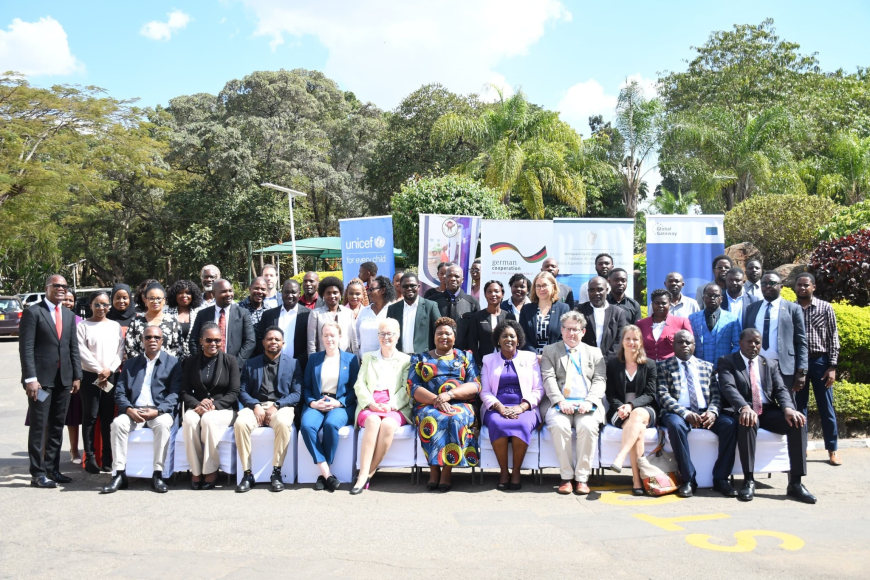In a powerful reaffirmation of Malawi’s resolve to build a socially inclusive and just society, the Ministry of Gender, Community Development, and Social Welfare launched the Midline Impact Evaluation Study of the Social Cash Transfer Programme (SCTP)—a flagship social protection initiative targeting the poorest and most vulnerable citizens. The launch event was held in Lilongwe.
Speaking during the official launch, Minister of Gender, Community Development, and Social Welfare Hon. Jean Sendeza emphasized that this is more than just a study but is a commitment to evidence-based policymaking and a national vision to uplift every Malawian, especially the ultra-poor, the elderly, persons with disabilities, and vulnerable children.
Sendeza highlighted that the Social Cash Transfer Programme is a bold expression of the leadership of His Excellency Dr. Lazarus McCarthy Chakwera, President of the Republic of Malawi, and his government’s dedication to the aspirations of Malawi 2063, a transformative vision of turning Malawi into a wealthy, self-reliant, and inclusive nation.
“Let this day remind us that social protection is not charity—it is justice. It is our responsibility as Government and as a society to ensure that no Malawian is excluded from this journey to development,” said Sendeza. Through predictable financial support to ultra-poor and labour-constrained households, the SCTP has helped families meet basic needs, send children to school, access healthcare, and build resilience to economic shocks.
Germany’s Ambassador to Malawi, Her Excellency Ute König, said that as a reliable partner, Germany has provided EUR 122 million through KfW, which has reached approximately 82,000 households in seven districts—benefiting nearly 400,000 individuals, 55 percent of whom are women. König appealed to other development partners to continue supporting the programme, stating that “no nation can afford to leave anyone behind.”
On his part, UNICEF Deputy Representative Gerrit Maritz highlighted the transformative power of Malawi’s SCTP through the story of Stella Maulana, a 39-year-old widow from Mwingitsa Village in Neno. Following the loss of her husband in 2014, Stella struggled to support her four children, often going without food and unable to keep them in school. But after being enrolled in the SCTP, her life took a turn: her family began eating three meals a day, the children returned to school, and she eventually built a thriving small business, first selling tomatoes, then second-hand clothes, and achieving financial independence.
Maritz emphasized that Stella’s journey is a testament to the programme’s impact, as reflected in a seven-percentage-point drop in ultra-poverty among participants. However, he noted the need for sustained support, cautioning that graduation from the SCTP does not equate to graduation from poverty. He called for thoughtful retargeting and recertification of households, reminding stakeholders that the real challenge lies in helping families maintain progress beyond programme support.
Launched in 2006, the Social Cash Transfer Programme (SCTP) is one of Malawi’s longest-running and most impactful social protection initiatives designed to provide regular and predictable cash transfers to ultra-poor and labour-constrained households, those headed by the elderly, persons with disabilities, or chronically ill individuals without support. The programme has reached over 335,000 households across Malawi












